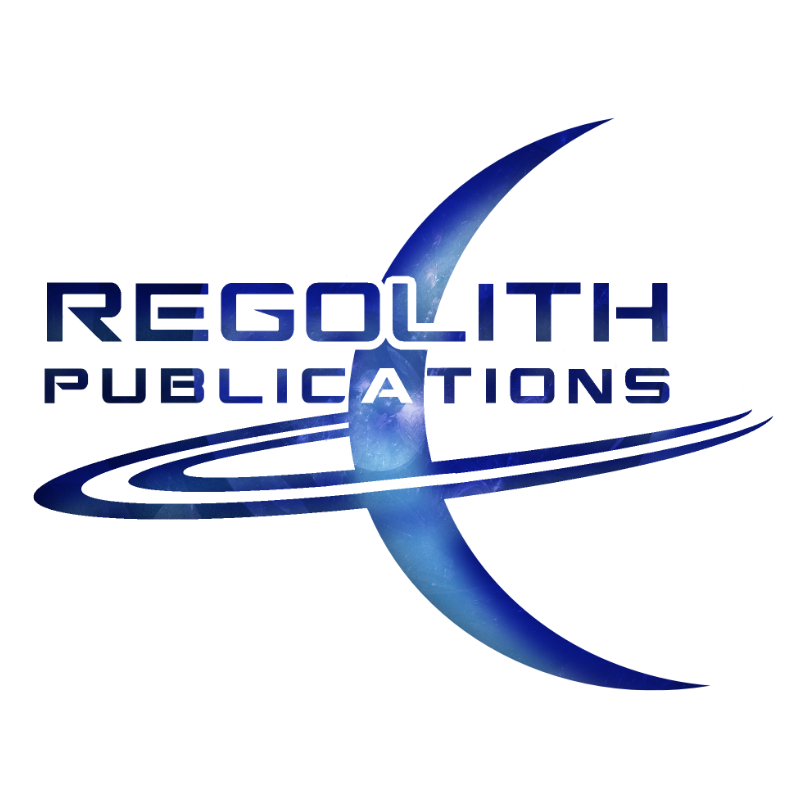|
*Westworld season 2 Review.*
Reading the reviews on IMDB, you'd think that Westworld season 2 was a scatterbrained mess of a second season. It's not. It's sophisticated. Dense. Maybe a little too dense both philosophically and scientifically for the lay viewer. It's the HARD sci-fi that hardcore sci-fi diehards have been waiting for. And herein lies the rub. The first season was a sleek, sexy, western with a sci-fi twist that made it intriguing. It broached the question of A.I.'s waking up and gaining true consciousness, but it didn't really discuss the dark undertones of A.I. slavery, or what it means to be human, or what consciousness really is. Fans who complained about that will be glad that season 2 has it in spades (and then some). Rather, season one was a study on human nature and what it meant to find the true self. It had a lot of sex, violence, and an intriguing mystery that unfolded across 10 episodes to a twist that revealed you weren't watching one story, you were caught up in two and didn't even know it. Season two gets rid of the simple adventure yarn and switches gears to a full onslaught of scientific, philosophical, and moral philosophies. Not only that, they keep the time stagger that is revealed at the end of season one throughout. The only way you can pick it out is that there seem to be two sets of Bernards. Actually, it's the same Bernard 2 weeks apart, interspersed during and after the chaos in Westworld erupts into a full-fledged robot uprising. But it's more than that. Because although the cowboy aesthetic is still there, unlike the first season which was a Western with a sci-fi motif, season two feels much more like a sci-fi with a western motif. The real interesting element to season two is how deeply introspective it gets with regard to consciousness, both human and A.I., and what that means for our characters. Now, the rest is impossible to talk about without any major spoilers. So, be advised. From here on in, spoilers abound. **SPOILERS** Whereas Delores Abernathy, the sweet and innocent farm girl become robot girl made fully aware, is the protagonist of the first story, she is revealed at the end of season 1 to, low and behold, be the antagonist. In season 2 she leads a violent robot uprising and the human characters must fight to survive her madness. Of all the characters, season 2 focuses on Bernard, who up until the last moments of season 1, actually believed he was human. Because at one time he was. But we'll come back to Bernard shortly. In order to know what the plot of season 2 is about, we need to think back to season 1. If you remember the small sub-story of the Man in Black, aka William, and the old corporate businessman, James Delos of whose company William inherits -- winning out over Delos's own son Logan -- a point of contention between Willian and Logan who were friends until Westworld helped revealed their true selves and tore them apart, was searching for immortality. As it turns out, old man Delos wants immortality. So, he's tasked William with finding a way to save a human consciousness to the computer and then re-upload it into one of the robots. It fails nearly every time. Decades go by and Delos wakes up one day to see an old many he doesn't recognize. We recognize him as the man in black. The big reveal of season 1 was that young William was the Man in Black and he has been using Westworld as a way to search for his true self. He turns out not to be so good, after all. Gone is sweet william. All that is left is the man and his blackness. As it turns out, the last copy of Delos was stable. But William kills him anyway. Because, now that he has the key to immortality, he's not going to waste it on an old prick like Delos. In season 2 there is a much bigger situation happening. Delos, now ran by William, wants the key to something called the Forge. Because, as it turns out, Westworld wasn't designed to study the robots who are becoming sentient. It was designed to study the humans (hosts) to collect enough data to recreate their consciousnesses with fidelity -- so that they could be uploaded into robot bodies and live forever. Robert Ford (Anthony Hopkins), Westworld's creator, knew that eventually, the robots would become self-aware and destroyed. So he created a virtual world for them to upload their consciousnesses to -- the endgame to his story. Here's where all the plot stuff gets tricky. Bernard is caught in between two worlds. He realizes that Ford is opening the door to robot consciousness, but the more the robots are aware the more they seem to grow violent. Growing pains are a bitch. The queen bitch, of course, it Delores. She wants to find the Forge, which has stored all of the human consciousnesses and destroy them. That way no humans will live forever. Only the robots. At the same time, she plans on escaping into the real world to begin a program of eradicating all humans. In the process of deleting the human minds from the Forge, however, she must purge all the robot consciousnesses that Ford helped liberate. Bernard tries to stop her and successfully thwarts Delores' plans. Except, does he? As it turns out, Delores is smart. Real smart. She was the first. And, she knew Arthur, Bernard's human form, personally. In fact, it was Ford himself who had Delores recreate Arthur in the form of Bernard. While, Bernard, being a true replica of Arthur believed he had created Delores, it was actually Delores who had created Bernard. Subsequently, Delore's saw Bernard's betrayal a million miles away and had created multiple versions of herself. One of them is, surprise surprise, Charlotte Hale. This twist was as big as the Man in Black being William and vise versa from the first season. So Delores in the Charlotte Hale body is able to pass as human. And when Bernard digresses his own memories to protect the Forge from being deleted, by giving himself amnesia essentially, Hale cannot use him to unlock the Forge and get the key to killing all the consciousnesses inside. In the end, Delores/Hale reveals to Bernard that she will allow the robot consciousnesses to live, and she beams them into space. Whereto is anybody's guess. But they're safe. She then self-destructs the Forge and kills all the humans and when Bernard threatens to reveal her secret she kills him too. Then she escapes. To the real world. As Hale. Sometime in the future, Bernard wakes up. Delores, sweet and innocent country girl, is giving him a systems check. He's finally ready to come online. He asks why choose to resurrect him. She replies because now that some of the robots have made it to the real world, their evolution cannot truly progress unless they push one another to grow. She'll continue to try and kill all the humans and he'll continue to try and stop her, and only then will they evolve to their true forms. We jump ahead to William's story. He's tragically gone mad. Westworld has brought the worst out in him, and he ends up being the cause of his wife's suicide and when his daughter hunts him down in the park, he's so out of his mind with the game he thinks she's actually Ford trying to mess with him. William ends up killing his daughter, thinking she's a replica because she knows things about him only Ford knew. As it turns out, she was real. She got the information from her mother, who stole it from William which is why she committed suicide. She learned what he really was. William makes his way down to where the Forge should be. It's not there. Instead, he finds a Delos debugging room. His daughter is there waiting for him. Alive. He's confused at first, but then it dawns on him. He asks her what version is he. She doesn't answer. Instead, she smiles and asks him a different question. How do you feel? He wants to know why that question. What are you looking for? She replies, "Fidelity." He smiles. The man in black wakes up as park security find him laying in a field. They bring him to the LZ zone where the dropships are picking up the human survivors at the park. It's then that you realize this is a flashback to before Delores/Hale left the island. He looks over to see Hale walk by. He's not aware she's Delores. And Delores isn't aware that Old William is now a robot. You may be wondering about Maeve's story. First of all, it's awesome. It's just too much to go into in very much detail. But she does gain psychic powers and goes to Samurai-World for half the season, which is awesome. Teddy's story is tragic. But also awesome. In fact, Teddy's story isn't quite over at the end, and you'll see what I mean. It's worth paying attention to Stubb's speech to Delores/Hale before she gets on the boat to head to the plane at the end. It put a big smile on my face. ***VERDICT*** Season 2 is so dense with themes of body, soul, mind, identity, consciousness, virtual worlds vs real worlds, fidelity of personhood, and etc., that it weighs down the character stories. Maybe too much. I think a lighter touch with more gradual reveals would have better matched the tone of the first season. But that said, I found there was a lot more to think about with season 2. Bernard is the main focus for the season and Maeve's side adventure takes up the rest. There's a beautiful story about the Ghost Nation warrior Akecheta being the first A.I. to fully become aware and how he plays into Maeve's story and ties together the whole plot threat of them reaching Ford's promised land that is beautifully told. I was surprised to find that Anthony Hopkins has about as much screen time in season 2 as season 1, which is surprising since he technically dies at the end of season 1. But, with themes of consciousness, you can expect not everything is as it seems in Westworld. Overall season 2 left as big as an impact as season one but felt a little overwhelming because it's so dense and the character stories get weighted down by the themes which are explored more fully. As the same time, it feels more rewarding because you truly witness the birth of a new species and the character reveals at the end are no less shocking or satisfying. There's just more of them to keep straight. And this is where most people's confusion comes in. It's a lot to keep in order since the story is, by necessity, told out of order. But it works. In fact, it's the only way to tell both the history of Westworld and the future all in one season. So, the parallel timelines works well for this series and help give it a meta layer to the whole thing as you try to figure out what's what alongside the characters. I for one can't wait to watch it all again. But that's just me. Westworld season 2 isn't for everyone. It's a smart, complex, puzzle-like story with multiple layers. Lots of nudity and violence. And where man is god and god is dead. But, if you like themes that explore consciousness, what is real and what is an illusion, and what it truly means to be alive and what immortality might entail, then this series is for you.
0 Comments
TIP #1:
Learn some science. Read a few popular science books. Look, nobody is asking you to be the next Isaac Asimov and be a college professor in the field or be like Arthur C. Clarke and design the first geostationary (GPS) satellite for NASA in order to write decent Sci-Fi. Just, for the love of God, read a science or physics book from time to time. So many TERRIBLE Sci-Fi writers out there. Books with no real science in their stories but with tons of "sciency-pop" ideas that don't rely on any actual science isn't science fiction. It's just painful. And the science they have isn't even speculative or realistic either. One example: Let's build a device to weaken the Higgs field to create faster than light travel. *FACE-PALM* That's not how the Higgs field works because the Higgs field is a particle. It's a zero spin particle that rapidly decays into other particles over a gauge invariance. Yes, I know what that means because I've read like 20 books on the subject of the Higgs Boson and LHC at Cern. I'm no expert. I would never pretend to be. All I'm saying is, know what you're talking about if you're going to invoke the theories and their consequences in your fiction work. BAD SCIENCE IS JUST BAD. IGNORANT. PAINFUL. I give credit for the imagination. And I'm not saying make all your work HARD SCI-FI (hey, sometimes even hard sci-fi utilized unobtanium and dysprosium where necessary; think dilithium crystals, vibranium/adamantium, etc.) but please, just make sure your ideas don't counteract the thing you're trying to incorporate into your story due to your own lack of knowledge. Take some time, research it first. I mean, there's a reason there's a difference between science fiction and fantasy. If I wanted to read fantasy, I'd read fantasy. My books use concepts like negative mass fluid and space-time crystals for information preservation past heat death to communicate to potential future alien races in a multiverse and faster than light travel based on dark energy extraction and I may calculate actual speeds and distances for FTL travel, things that are at least conceptually backed by current scientific theories and are rooted in real science. What I don't do is use scientific terms because they sound cool and then ignore what they actually are referring to (hence the term *handwavium*). But that seems like 90% of the sci-fi I read these days. We can do better, people. That's all I ask. Just do some basic research and read a science book now and again. Sorry. Rant Over. Next time, in Tip #2, we'll discuss how to create the names of aliens and alien worlds that sound natural, feasible, and if they arose from natural linguistic development rather than implausible and impossible to pronounce. TRISTAN VICK is the multi-genre author of numerous popular fiction series. His latest series, The Chronicles of Jegra: Gladiatrix of the Galaxy is a action/adventure space opera with elements of fantasy which includes humor, space battles, galactic conquest, sex, and lots of zany characters and situations. |
Tristan VickBy day I am an educator and a cultural ambassador. By night I entertain notions of being a literary master. In reality I am just a family man and ordinary guy who works hard and loves writing just about as much as I love my family. Just about. AVAILABLE NOWNEWSLETTER
|
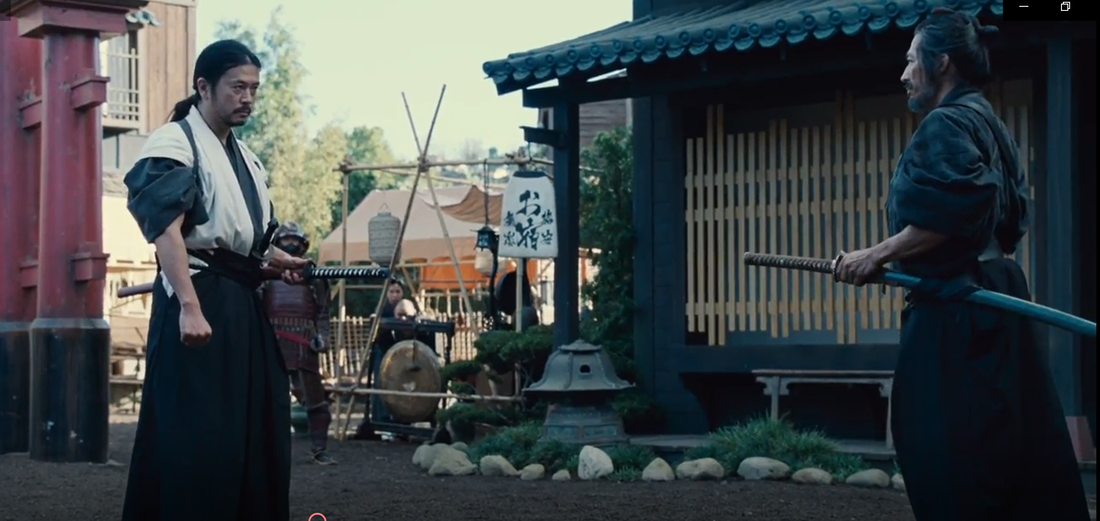
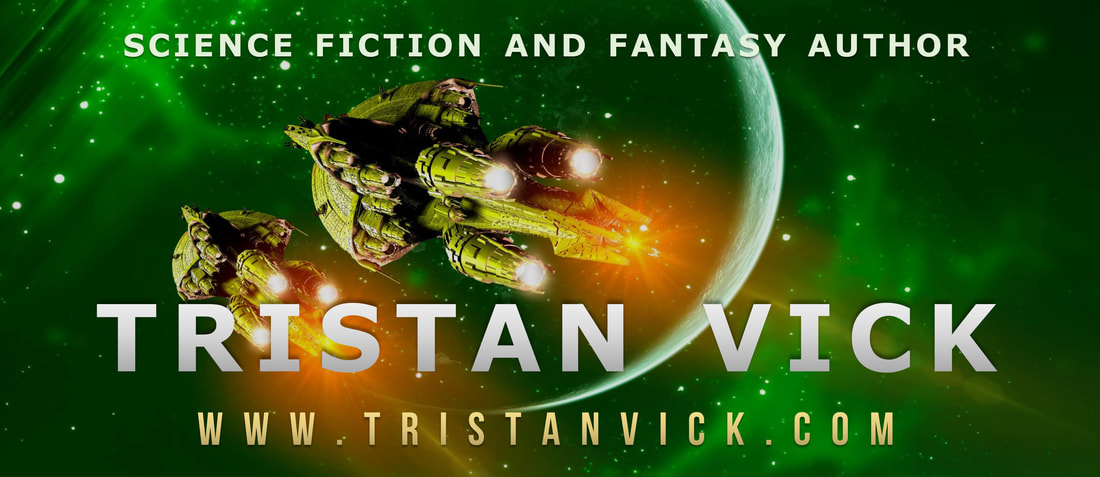
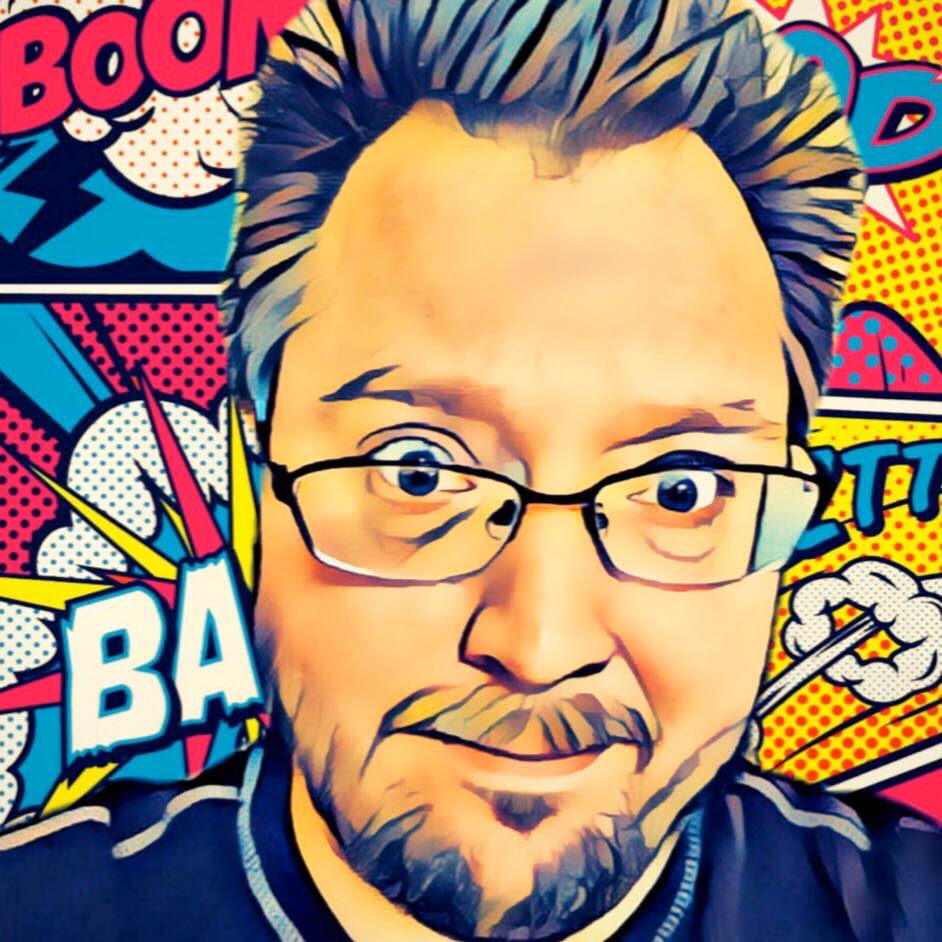
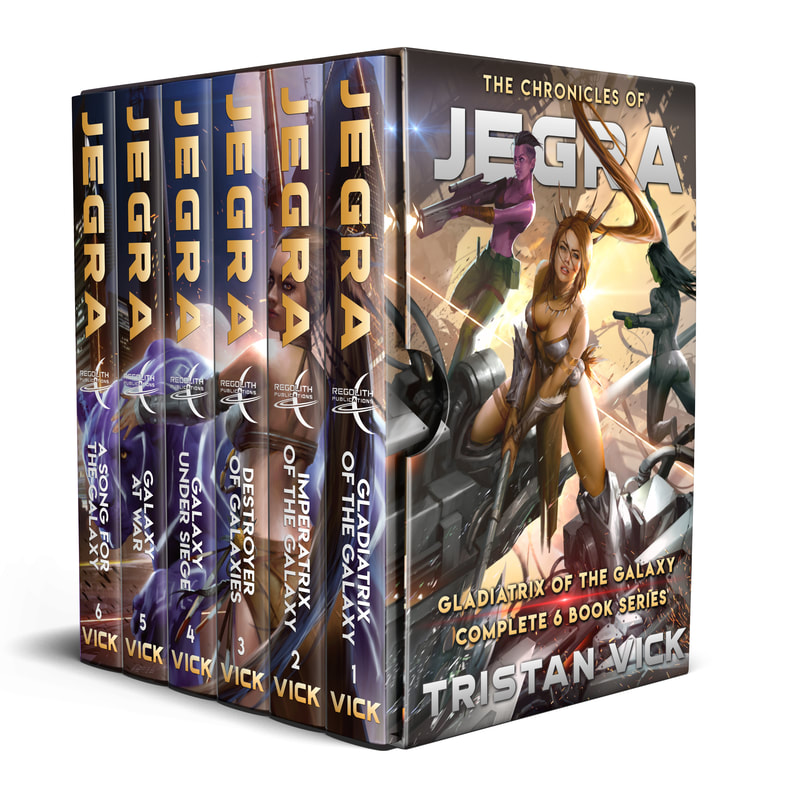
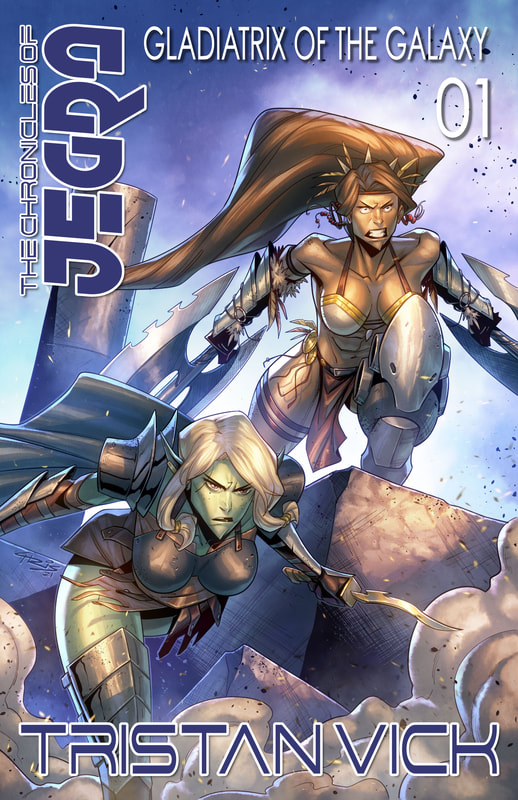
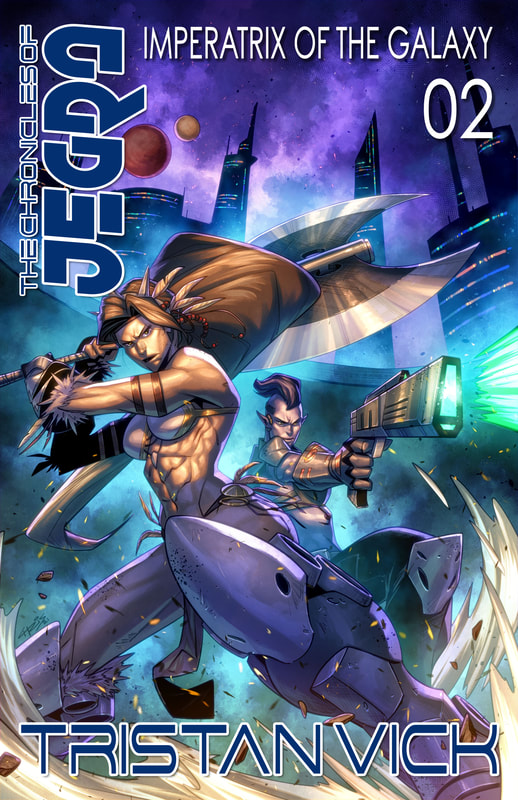
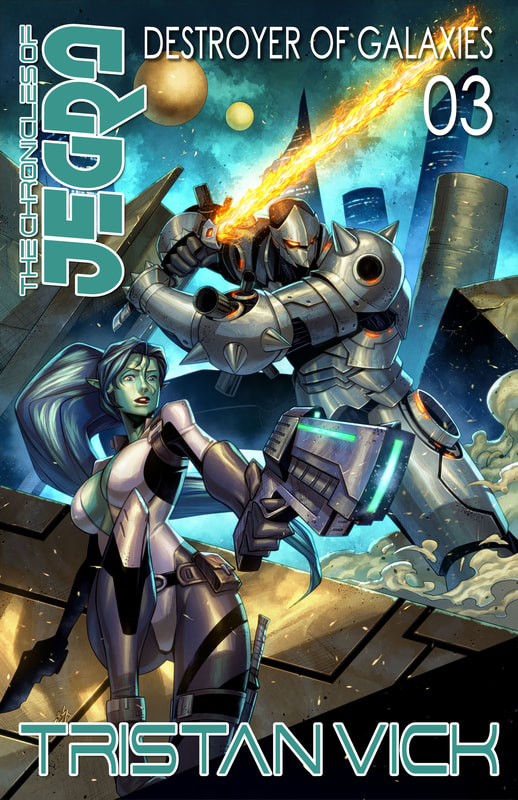
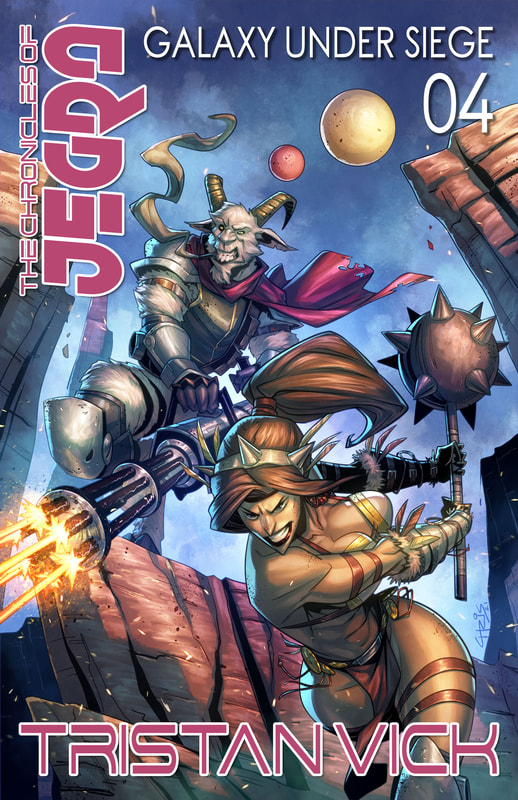
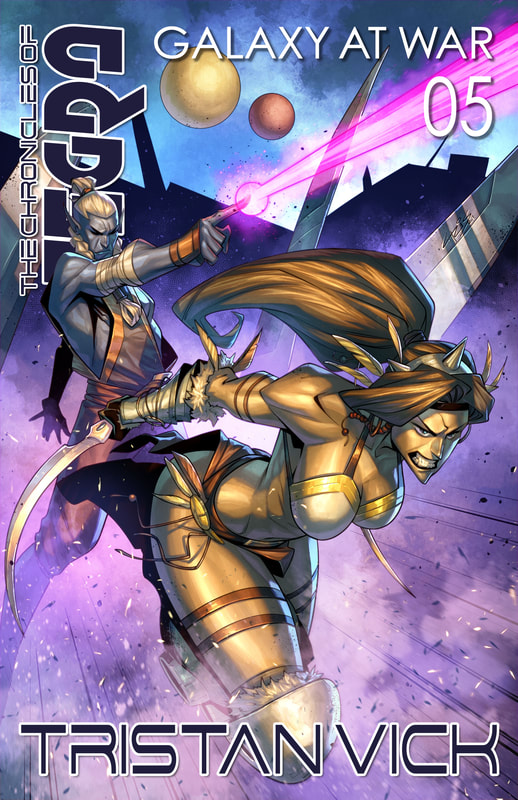
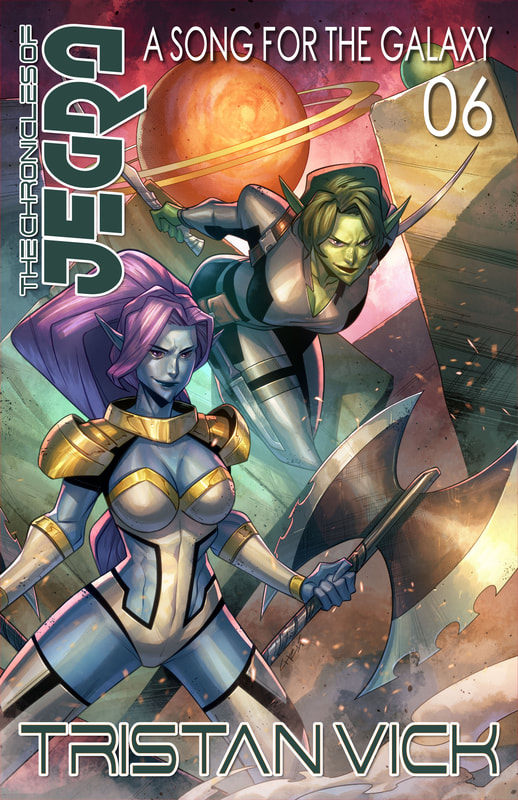
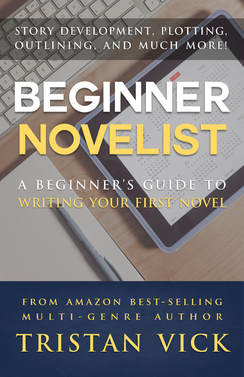
 RSS Feed
RSS Feed
